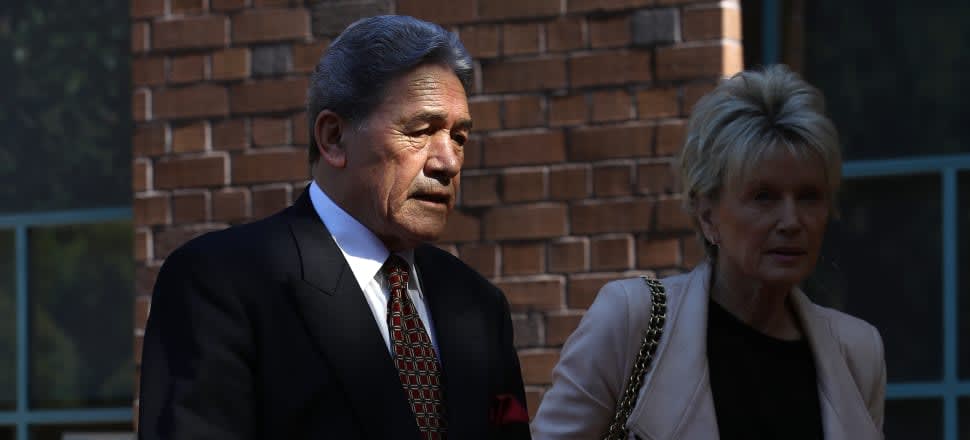
The Crown closes its High Court fraud case against two men over donations to the New Zealand First Foundation, citing subterfuge that kept key party officials in the dark
Is Winston Peters 'the' New Zealand First Party? Is he its chief executive officer, delegated financial decision-making powers by the party's board? Is he The Boss?
The role of the NZ First party leader took centre stage again at the High Court as the Crown closed its case against two men charged with obtaining by deception up to $750,000 in donations made for the party between 2015 and 2020.
The Crown alleges the money was solicited from wealthy donors for the party but they were given bank accounts to deposit their money into which were outside the party's control. And the donations were never then 'transmitted' to the party's secretary as required by law, to be declared to the Electoral Commission.
The two men deny the charges and argued when the trial opened that no offence had been committed, money raised for the party had ended up being spent on party projects and it was "significant" that Peters was not a witness for the Crown's case.
It was revealed during the three-week trial that Peters was never interviewed by the Serious Fraud Office during its investigation into the New Zealand First Foundation and a company owned by one of the two defendants, whose names are suppressed.
And the Crown has largely left the party's founder and political leader out of its case. It has been the defence, in questioning witnesses, that has repeatedly suggested the two men's use of the money which lodged in the foundation and company's bank accounts was known by and tacitly or explicitly okayed by Peters.
During Thursday's closing statement by the Crown, John Dixon QC opted to address the defence's contentions around Peters.
Peters had been described by the defence as effectively the party's chief executive, delegated fundraising and financial decision-making by the board. Another defence lawyer, Tudor Clee, suggested to witnesses that it was Peters who knew of payments made by the foundation. Evidence in the trial showed Peters and his partner Jan Trotman did intervene to get overdue party bills paid, and that money came from the foundation.
Dixon said: "There's evidence in questioning from the defence - an argument that Mr Peters was and is the party, Mr Peters knew and approved of what was going on.
"It's my submission Mr Peters is not the party. The party is wider than that and represented by a number of witnesses who gave evidence. This is not to say that Mr Peters did not know some of what was going on but it cannot be sensibly argued that Mr Peters had full knowledge of the true picture."
Dixon said: "If he did, he must have approved of the donors being solicited for funds put into non-party accounts ... he [must have] knowingly allowed the party's declaration to be false, deliberately withheld information from the board, instructed monies to be paid in breach of the [New Zealand First Foundation] trust deed.
"But the Crown says that Mr Peters, who plainly trusted [one of the defendants] simply proceeded on the basis of the assurances of [that defendant] that what was going on was legal. He, too, was oblivious."
If what the defence contended was correct, then Peters needed to be viewed as "an uncharged co-conspirator" - but Dixon said that was not what the Crown contends. The defence needed to have called Peters as a witness and put its suggestions to him, but did not.
Dixon said the two men had obtained control of the funds donated to the party, and retained control without the knowledge of the party or party secretary.
"There's no doubt they obtained control.... Mr Peters was not in control of the foundation accounts [just] because he asked for some bills to be paid."
Peters has been described by witnesses as The Boss. But former party secretary Anne Martin said that was not a term she or women tended to use, it was mainly used by male party members.
He and Trotman were approached by various party figures to help in getting money to pay overdue bills - for a database system, a contractor and for the party auditor - and reassured the officials payment would be forthcoming.
Dixon's closing statement explained the two factors required to make the Crown's case - that the defendants obtained donor funds to their non-party account by deception (not telling donors it was going to the company or foundation) and that they then failed to 'transmit' those funds to the party and party secretary who was required under the law to declare them to the Electoral Commission.
The party did not know of the donations to the two accounts. "They were kept in the dark."







